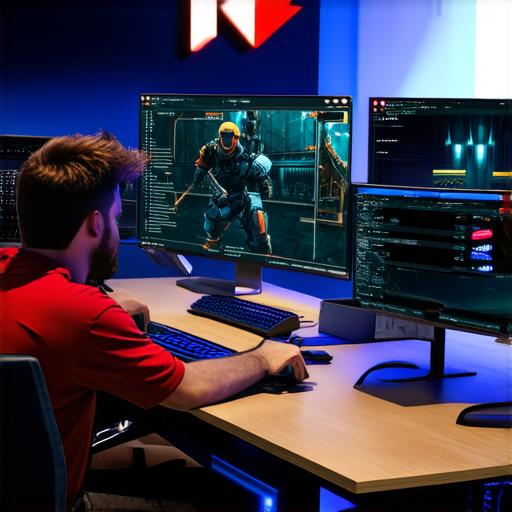Game design is a complex field that requires a diverse set of skills and knowledge. It involves creating engaging and immersive experiences for players, which often involves a combination of creativity, technical expertise, and business acumen. While there is no denying that learning game design can be challenging, it is also an incredibly rewarding career path with limitless potential for innovation and creativity.

What does game design involve?
Game design encompasses a wide range of disciplines and tasks, including level design, character modeling, storytelling, programming, and much more. Game designers work closely with artists, writers, programmers, and other members of the development team to create unique and engaging game experiences that captivate players for hours on end.
The learning curve for game design
Learning game design can be challenging, as it requires a diverse set of skills that may not have been covered in your traditional education. However, there are many resources available to help you learn game design, including online courses, tutorials, and workshops.
Many people start by learning the basics of programming or game engines such as Unity or Unreal Engine. They then move on to more advanced topics such as game theory, user experience (UX) design, and game monetization strategies. Some even pursue a formal degree in game design or related fields, which can provide a more structured approach to learning the craft.
The benefits of pursuing a career in game design
Despite the challenges of learning game design, it is a highly rewarding career path that offers many benefits. Game designers have the opportunity to create innovative and engaging experiences for players around the world, and they can work in a variety of settings, from small indie studios to large corporations.
In addition, game design jobs are often well-compensated and offer a flexible work schedule. They also allow for a high degree of creativity and innovation, as designers have the freedom to explore new ideas and push the boundaries of what is possible in a game.
Conclusion
Is it difficult to learn game design? Yes, it can be challenging, but with dedication, hard work, and the right resources, anyone can become a successful game designer. The rewards are numerous, including the opportunity to create engaging and innovative experiences for players around the world. So if you have a passion for games and a desire to create something truly special, consider pursuing a career in game design.
